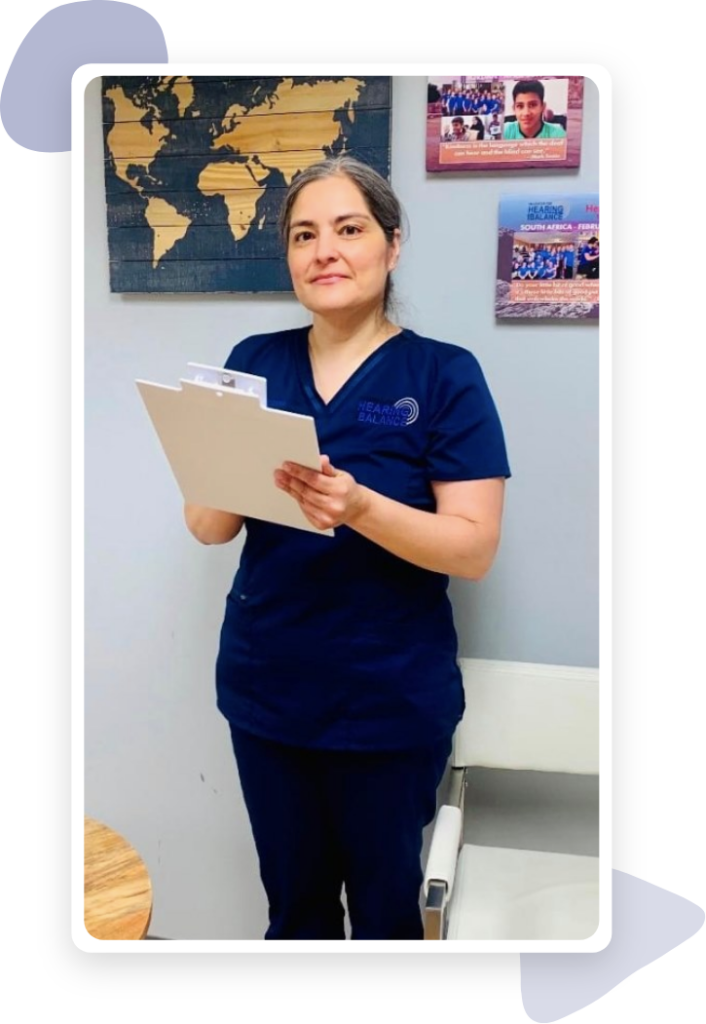AUDITORY PROCESSING DISORDER
Auditory Processing Disorder or APD is a common hearing problem. It can be hard to diagnose, and even harder to treat.
Some people may have trouble following along during conversations or figuring out where a certain sound is coming from. People with APD may also find it difficult to understand what someone infront of them is saying, especially in an environment with loud sounds.

People with APD often feel frustrated because they hear well enough for others but not themselves. And, it’s frustrating when people tell them that what they’re saying isn’t clear or understandable.
Auditory processing disorder therapy is the answer! A person who has been diagnosed with auditory processing disorder needs treatment from an experienced therapist so he/she can understand what’s being said easily and more clearly in social situations, school, work etc.
This will help him/her to communicate properly which reduces stress levels and anxiety caused by miscommunication due to auditory processing disorder. The best way for a person with this condition to get better fast is through therapy sessions at least once or twice per week over several months’ time period (depending on severity).
AUDITORY PROCESSING DISORDER : WHAT ARE THE SIGNS AND SYMPTOMS?
Children with APD can also have difficulty reading or writing due to their inability to process sound waves efficiently. It’s important for these children to get help early in order to prevent future struggles with social interaction and academics.
You need to have yourself checked by a doctor and establish if you have auditory processing disorder if the following things are experiencing difficulty with the following:
Following conversations Identifying where a sound came from Listening to music Understanding what people say, especially loud places or if there is more than one person talking at once
Auditory Processing Disorder: Causes
*Specific illnesses – chronic ear infections, lead poisoning or meningitis
*Head injury
*Premature birth or low birth weight
*Genes
Auditory Processing Disorder Diagnosis
A doctor may perform a hearing test on you to see if your communication difficulties are due to hearing loss, but don’t worry if that doesn’t turn up anything – only an audiologist can diagnose auditory processing disorder. Auditory processing disorder (APD) is a common condition where patients experience difficulty understanding speech because their brains process information differently than someone without APD does.
If you’re in the Springfield, PA area and want to seek medical attention for auditory problems, you may visit us at PA Center for Hearing and Balance. Our in-house audiologists will perform a series of advanced hearing tests where the patient will have to listen to different sounds and respond accordingly when they hear them. The response may either be repeating the heard sound or pushing a button, depending on what is being asked at the time, which then provides information about how well they process sound in general.
The ear is the most common way to test for APD.
The responses of young children may not be accurate, so they are usually excluded from these tests.
AUDITORY PROCESSING DISORDER IN KIDS
The sound of a school bell ringing should be a happy sound to most students, but for some children, it is an annoyance. This is because they have auditory processing disorder (APD), which makes it difficult for them to process what they hear compared to other kids. For these kids, the bells are not harmonious and pleasant sounding at all.
Children with auditory processing disorder have difficulty learning because they can’t process what they hear like other kids do. The ears and the brain are not fully coordinated. Ears pick up sounds but along the way to the brain something interferes.
Children often have difficulty interpreting and using sounds correctly even when it does not seem like they are having any difficulties. This is because the most common symptoms of APD occur in childhood, such as speech problems and listening difficulties.
AUDITORY PROCESSING DISORDER AND DYSLEXIA
Experts have found that auditory processing disorder may be linked to other disorders with similar symptoms such as dyslexia or ADHD. As a result of the many studies that have been done linking auditory processing disorder to dyslexia, some experts also hypothesize that ADHD might be caused by auditory processing disorder.

FREQUENTLY ASKED QUESTIONS
Auditory processing disorder is a brain disorder that affects how the person hears things in their everyday lives. It does not affect a person’s ability to understand what they are hearing, but instead it can make it difficult for them to process information.
Auditory processing disorder is a condition in which the brain processes sound differently than it typically does. This means that a person with this disorder can understand meanings as well as anyone else, but they might not hear sounds the same way that we do because their brain has trouble interpreting what they are hearing.
A person with auditory processing disorder will have no trouble understanding others or being understood themselves, but may find it difficult to verbally follow conversations without making mistakes and should be screened for APD when other causes of language problems are ruled out.
Anyone across the age spectrum can have auditory processing disorder. It is often developed in childhood but also later in life.
Little boys are more likely to develop this disorder than girls, so it’s important for parents of young children with APD to be aware of any learning delays that might arise during their early years.
If you’ve been having trouble understanding speech, it might not be a problem with your hearing. Auditory processing disorder is the inability to process sounds and information in a normal way, typically as a result of a neurological condition or injury. It may also have an effect on how well people are able to learn language and communicate effectively.
Children with auditory processing disorder often have a tough time filtering out noise, but it is possible that the brain can grow and develop until around age 13. After this point, there are no more changes in the auditory system, so any diagnosis for APD before age 13 could essentially “grow out of” over time.
The more people age, the more minor auditory processing problems grow and can impact daily life. The auditory nervous system becomes a little less flexible with age. This means that listening and processing language, especially with background noise may become more challenging.
With APD, it’s important to note the result of a hearing disorder. It isn’t because of other conditions affecting understanding or attention such as autism spectrum disorder (ASD) and attention deficit hyperactivity disorder (ADHD).
APD is a learning disability which affects the way one processes sound. It can interfere with speech, language, reading and writing abilities, as well as hearing. The disorder currently afflicts only 3-4 percent of the population.
No one can predict where auditory processing disorder will strike next. It’s a sneaky condition that can be difficult to detect in the early stages, and it requires careful consideration of all the signs and symptoms before diagnosis. But with so many treatments available for this tricky condition there is no need to worry – audiologists are experts at combining a variety of treatment strategies to help you regain your hearing quickly. We at PA Center for Hearing and Balance can help you enjoy a better quality of life, managing auditory processing disorder with treatment options that fit you best.
Auditory processing disorder sufferers have an impaired ability to process auditory information in a way that is typically expected given their age and intelligence. There are many treatment options available, but it’s often best to combine different treatments for faster improvement. Some of the most common interventions include teaching skills to compensate for the condition and modifying environments. Audiologists at PA Center for Hearing and Balance, we work closely with you so we can come up with the most effective treatment for your auditory processing disorder.
There are two different conditions that people could have with regards to their hearing. One is Auditory Processing Disorder and the other is ADHD. People with Auditory Processing Disorder are typically adults who complain about listening skills, but they also might experience delays in speech development. On the other hand, those with ADHD usually present themselves as having poor attention span or being hyperactive and not being able to sit still for long periods of time.
Hear Better. Live Better.
-
130 S. State Road,
Suite 201 Springfield, PA 19064 -
905 West Sproul Rd,
Suite 201 Springfield, PA 19064 - 610-438-5203
